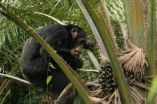(Press-News.org) Food not only nourishes the body but also affects its internal biological clock, which regulates the daily rhythm of many aspects of human behavior and biology. Researchers reporting in the Cell Press journal Cell Reports provide new insights into how adjusting the clock through dietary manipulation may help patients with various conditions and show that insulin may be involved in resetting the clock.
An internal biological or 'circadian' clock plays an important role in preferred sleep times, times of peak alertness, and the timing of certain physiological processes. The clock enables maximum expression of genes at appropriate times of the day, allowing organisms to adapt to the earth's rotation. "Chronic desynchronization between physiological and environmental rhythms not only decreases physiological performance but also carries a significant risk of diverse disorders such as diabetes, cardiovascular diseases, sleep disorders, and cancer," says Dr. Makoto Akashi, of Yamaguchi University, in Japan.
The circadian clock involves two major pathways. The first, which responds to light, has been well characterized. The second, which responds to food, is less understood. Through experiments in cells and mice, Dr. Akashi and his colleagues found, using cell culture, that insulin, a pancreatic hormone that is secreted in response to feeding, may be involved in resetting the circadian clock. "Insulin-mediated phase adjustment of the clock in feeding-relevant tissues may enable the synchronization between mealtime and tissue function, leading to effective digestion and absorption," he says. "In short, insulin may help the stomach clock synchronize with mealtime."
The researchers' findings provide valuable information on how to adjust the circadian clock through dietary manipulation. "For example, for jet lag, dinner should be enriched with ingredients promoting insulin secretion, which might lead to a phase advance of the circadian clock, whereas breakfast would be the opposite," says Dr. Akashi. The findings also suggest that clock adjustments through feeding might not work well in individuals with insulin resistance, a characteristic of patients with type 2 diabetes. Also, there may be side effects related to the circadian clock when treating patients with insulin.
INFORMATION:
Cell Reports, Sato et al.: "The role of the endocrine system in feeding-induced tissue-specific circadian entrainment."
What you eat may affect your body's internal biological clock
2014-07-10
ELSE PRESS RELEASES FROM THIS DATE:
Mediterranean fish stocks show steady decline
2014-07-10
While careful management has helped stabilize or even improve the state of fisheries resources in some parts of Europe, the situation in the Mediterranean has deteriorated over the past 20 years. In a new report evaluating nine fish species reported in the Cell Press journal Current Biology on July 10, scientists call for stringent monitoring of Mediterranean fishing activities, better enforcement of fisheries regulations, and advanced management plans in Mediterranean waters.
Their data show that the fishing pressure in the Mediterranean intensified continuously from ...
Chimpanzee intelligence depends on genes
2014-07-10
Some chimpanzees are smarter than others, and about half of that variation in intelligence depends on the genes that individuals carry and pass on from one generation to the next. The findings reported in the Cell Press journal Current Biology on July 10 show that those genetic differences will be key to understanding the cognitive abilities of primates and their evolution over time.
"As is the case in humans, genes matter when it comes to cognitive abilities in chimpanzees," says William Hopkins of the Yerkes National Primate Research Center. "It doesn't mean that they ...
Hunger for vegetable oil means trouble for Africa's great apes
2014-07-10
The vegetable oil found in your popcorn or soap might not be ape friendly, and the situation appears likely to get even worse, according to an analysis in the Cell Press journal Current Biology on July 10.
The growing demand for vegetable oil has already led to the conversion of Southeast Asian forest into oil palm plantations, bringing trouble for orangutans in particular. If guidelines are not put in place very soon, researchers say the spread of those large-scale industrial plantations from Asia into Africa will be bad news for great apes there as well.
"The first ...
New compound treats both blindness and diabetes in animal studies
2014-07-10
In a new study led by UC San Francisco (UCSF) scientists, a chemical compound designed to precisely target part of a crucial cellular quality-control network provided significant protection, in rats and mice, against degenerative forms of blindness and diabetes.
In addition to opening a promising drug-development path for the wide range of diseases caused by cell loss, the new research offers a new view of the workings of the unfolded protein response (UPR), a cellular "life-or-death" signaling network: When cells are under stress, the UPR works to ensure that they produce ...
Chimpanzee intelligence determined by genes
2014-07-10
ATLANTA–A chimpanzee's intelligence is largely determined by its genes, while environmental factors may be less important than scientists previously thought, according to a Georgia State University research study.
The study found that some, but not all, cognitive, or mental, abilities, in chimpanzees depend significantly on the genes they inherit. The findings are reported in the latest issue of Current Biology.
"Intelligence runs in families," said Dr. William Hopkins, professor in the Center for Behavioral Neuroscience at Georgia State and research scientist in the ...
Climate change may bring more kidney stones
2014-07-10
As daily temperatures increase, so does the number of patients seeking treatment for kidney stones. In a study that may both reflect and foretell a warming planet's impact on human health, a research team found a link between hot days and kidney stones in 60,000 patients in several U.S. cities with varying climates.
"We found that as daily temperatures rise, there is a rapid increase in the probability of patients presenting over the next 20 days with kidney stones," said study leader Gregory E. Tasian, M.D., M.Sc., M.S.C.E., a pediatric urologist and epidemiologist at ...
In the gut, immunity is a 2-way street
2014-07-10
In recent years, it has become increasingly clear that many diseases are triggered or maintained by changes in bacterial communities in the gut. However, the general view up into now has been rather simple: bacteria stimulate the immune system, leading to inflammation or autoimmune disorders in a single direction.
Now, in work published in Immunity, scientists led by Sidonia Fagarasan from the RIKEN Center for Integrative Medical Science in Japan have painted a more complex picture: the gut immune system does not simply prevent the influx of pathogens, but is actively ...
Sleep disturbances, common in Parkinson's disease, can be early indicator of disease onset
2014-07-10
Amsterdam, NL, 10 July 2014 – Up to 70% of Parkinson's disease (PD) patients experience sleep problems that negatively impact their quality of life. Some patients have disturbed sleep/wake patterns such as difficulty falling asleep or staying asleep, while other patients may be subject to sudden and involuntary daytime sleep "attacks." In the extreme, PD patients may exhibit REM-sleep behavior disorder (RBD), characterized by vivid, violent dreams or dream re-enactment, even before motor symptoms appear. A review in the Journal of Parkinson's Disease discusses the underlying ...
Rice's silicon oxide memories catch manufacturers' eye
2014-07-10
Rice University's breakthrough silicon oxide technology for high-density, next-generation computer memory is one step closer to mass production, thanks to a refinement that will allow manufacturers to fabricate devices at room temperature with conventional production methods.
First discovered five years ago, Rice's silicon oxide memories are a type of two-terminal, "resistive random-access memory" (RRAM) technology. In a new paper available online in the American Chemical Society journal Nano Letters, a Rice team led by chemist James Tour compared its RRAM technology ...
Mayo Clinic calls for standardization of safe imaging protocols for children
2014-07-10
ROCHESTER, Minn. — The benefits of medical imaging far outweigh the risks when children receive The Right Exam, ordered The Right Way, with The Right Radiation Dose. However, overuse and misuse of imaging change the benefit-risk ratio and Mayo Clinic is leading a collaborative effort to ensure a national protocol is put into action. The commentary, published online in the Journal of Patient Safety, calls for the American College of Radiology, the Joint Commission, the Intersociety Accreditation Commission, and the Centers for Medicare & Medicaid Services to require three ...

